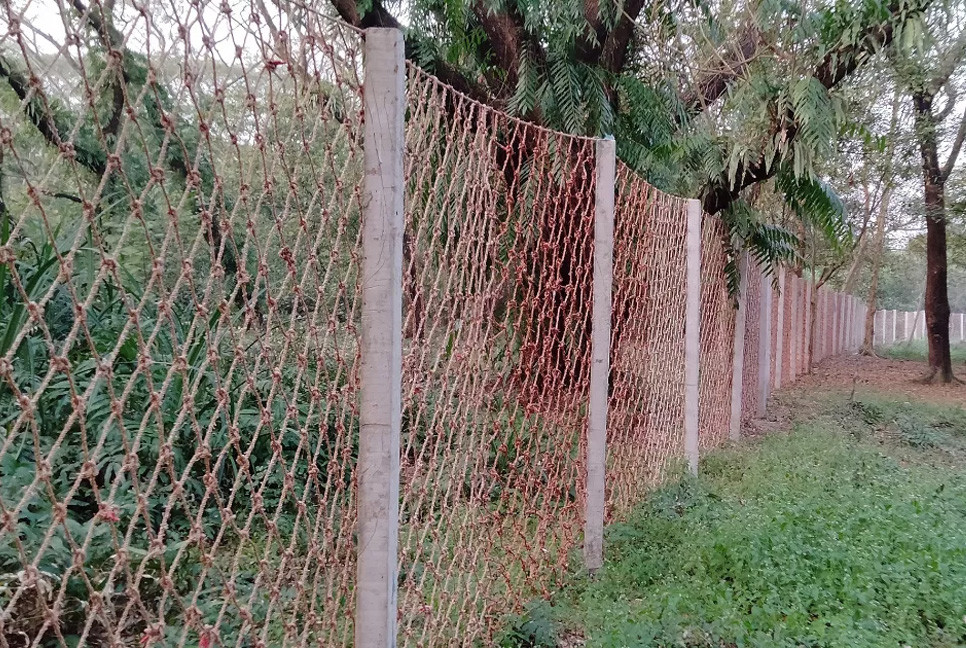To prevent wildlife from entering villages, the government is installing 60 km of nylon net fencing along the Sundarbans, easing tiger fears for thousands of villagers, reports UNB.
Tigers and other wildlife enter into the locality, making it difficult for the villagers to drive the animals away, causing casualties on both sides due to attacks and counterattacks.
Besides, the natural deposition of silt has filled up rivers and canals, forcing the wildlife animals to leave the forest and enter into villages. Similarly, villagers and their livestock frequently enter the Sundarbans.
This marks the first instance of fencing being installed in the Bangladeshi portion of the Sundarbans.
According to the sources at the Forest Department, once the fencing is completed, tigers, deer, wild boars and other animals will no longer be able to enter human settlements and similarly, livestock will be prevented from straying into the forest.
The fencing will also restrict unauthorized human entry into the Sundarbans.
Villagers living near the Sundarbans claimed that tigers often invade their villages, causing sleepless nights due to fear. The announcement of the fencing has begun to ease their anxiety.
Assistant Conservators of Forests (ACFs) Deepen Chandra Das of Chandpai Range and Rana Deb of Sharankhola Range highlighted the fencing’s importance in preserving biodiversity and reducing tiger-related fears among villagers.
Efforts are also being made to make local communities aware about protecting the fencing. They urged the government to provide financial incentives for volunteer conservation groups such as the Community Patrol Group, Village Tiger Response Team and Dolphin Conservation Team.
Dr. Anwarul Islam, CEO of WildTeam and a wildlife conservation expert, stressed that the fencing will prevent tigers from straying into human settlements but will also put pressure on local communities.
He emphasized the need to raise awareness among villagers and establish a social security system to protect the fencing.
He further pointed out that maintenance of the fencing is crucial.
Daily monitoring is required and the Forest Department must take strict action against vandalism, he said.
He also recommended offering incentives for forest staff to ensure their dedication to conservation efforts.
Bd-Pratidin English/ AM































































